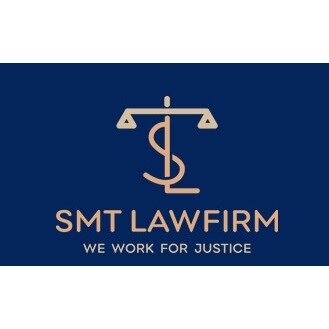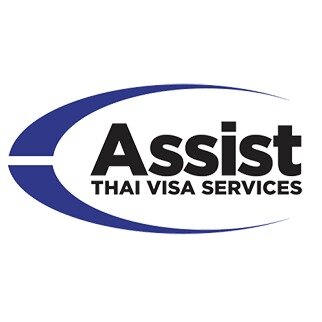ทนายความ การยึดทรัพย์ ที่ดีที่สุดใน เชียงใหม่
แบ่งปันความต้องการของคุณกับเรา รับการติดต่อจากสำนักงานกฎหมาย
ฟรี ใช้เวลา 2 นาที
คู่มือฟรีสำหรับการจ้างทนายความอสังหาริมทรัพย์
รายชื่อทนายความที่ดีที่สุดใน เชียงใหม่, ประเทศไทย
คู่มือกฎหมายเขียนโดย SIAM LEGAL INTERNATIONAL:
- Defamation Laws in Thailand: Criminal Charges and Civil Suits
- The State of Thailand’s Long-Term Resident (LTR) Visa Program in 2025
- The Penalties Of Not Filing Your Income Tax Return As A Foreigner In Thailand
1. เกี่ยวกับกฎหมายการยึดทรัพย์ในเชียงใหม่, ประเทศไทย
การยึดทรัพย์ในเชียงใหม่ดำเนินการภายใต้กระบวนการบังคับคดีของศาล ทั้งในระดับจังหวัดและภูมิภาค ทรัพย์สินที่ยึดได้รวมถึงอสังหาริมทรัพย์ เงินสด เงินฝาก และทรัพย์สินหมุนเวียนต่างๆ ซึ่งถูกอายัดเพื่อชดใช้หนี้ หรือสิทธิเรียกร้องของเจ้าหนี้
ขั้นตอนหลักคือการออกหมายยึดทรัพย์ การอายัดทรัพย์ และท้ายสุดการขายทอดตลาดผ่านเจ้าพนักงานบังคับคดี ข้อกำหนดและขั้นตอนมีรายละเอียดในกฎหมายกลางของประเทศ แต่การบังคับใช้ในเชียงใหม่จะดำเนินการโดยศาลและหน่วยงานที่อยู่ในพื้นที่จังหวัดเชียงใหม่
2. ทำไมคุณอาจต้องการทนายความ
ตัวอย่างที่เกิดขึ้นจริงในเชียงใหม่ เจ้าของบ้านในชุมชนเมืองเชียงใหม่ถูกหมายบังคับคดีลดหนี้ธนาคาร และต้องหาทนายเพื่อตรวจสอบความถูกต้องของหมายและยื่นคำคัดค้านหากเห็นว่าไม่ชอบด้วยกฎหมาย
คุณอาจต้องทนายเมื่อมีการยึดทรัพย์ของครอบครัวที่มีมรดกทับซ้อน หรือเมื่อมีการอายัดทรัพย์ของผู้ร่วมสมรสในเชียงใหม่ที่ต้องพิสูจน์สิทธิครอบครอง
กรณีที่นายจ้างหรือลูกจ้างถูกบังคับคดีเกี่ยวกับเงินเดือนหรือสวัสดิการ ทนายสามารถช่วยเจรจาและยื่นคัดค้านชั่วคราวได้
เมื่อทรัพย์สินอยู่ในพื้นที่เชียงใหม่และมีข้อพิพาทเรื่องมูลค่าทรัพย์สิน ทนายจะช่วยประเมินค่าและหากลยุทธ์การเจรจาหนี้ที่เหมาะสม
กรณีที่มีการฟ้องร้องเรื่องการยึดทรัพย์ที่อาจไปถึงการขายทอดตลาด ทนายสามารถวางแผนเพื่อขอระงับชั่วคราวและยื่นคำร้องขอคำสั่งศาล
3. ภาพรวมกฎหมายท้องถิ่น
เชียงใหม่ใช้กฎหมายกลางของประเทศไทยในการยึดทรัพย์ และไม่มี “กฎหมายเชียงใหม่เฉพาะการยึดทรัพย์” ที่แยกออกจากประเทศ ความจริงคือกระบวนการขึ้นกับกฎหมายกลางและประกาศของศาลในพื้นที่
อย่างไรก็ตาม บทบัญญัติของพระราชบัญญัติบังคับคดี ประมวลกฎหมายวิธีพิจารณาความแพ่ง และประมวลกฎหมายแพ่งและพาณิชย์ มีการบังคับใช้อย่างสอดคล้องทั่วประเทศ รวมถึงเชียงใหม่
ในเชียงใหม่ ศาลจังหวัดเชียงใหม่และสำนักงานบังคับคดีในพื้นที่จะดูแลขั้นตอน เช่น การออกหมายยึด การอายัดทรัพย์ และการขายทอดตลาด โดยทำตามแนวทางของกฎหมายกลาง
คดีบังคับคดีทั่วไปในเชียงใหม่มักใช้เวลาประมาณ 6-12 เดือนนับจากคำสั่งศาลถึงการตัดสินขั้นสุดท้าย หากไม่มีข้อพิพาทร้ายแรง
แหล่งข้อมูลทางกฎหมายที่ควรตรวจสอบประกอบได้แก่
- พระราชบัญญัติบังคับคดี เป็นกรอบหลักของกระบวนการยึดทรัพย์
- ประมวลกฎหมายวิธีพิจารณาความแพ่ง กำหนดขั้นตอนชี้ขาดและการยื่นคำร้องต่อศาล
- ประมวลกฎหมายแพ่งและพาณิชย์ เกี่ยวข้องกับสิทธิในทรัพย์สินและข้อพิพาท
แหล่งอ้างอิงแนวคิดกฎหมายอ้างอิงได้ที่เว็บไซต์ราชการระดับประเทศ เช่น
4. คำถามที่พบบ่อย
อะไรคือขั้นตอนหลักในการยึดทรัพย์จากศาลในเชียงใหม่?
ขั้นแรก ศาลออกหมายบังคับคดีตามคำร้องของเจ้าหนี้ จากนั้นเจ้าพนักงานบังคับคดีจะอายัดทรัพย์ที่เกี่ยวข้องและดำเนินการขายทอดตลาดเมื่อไม่มีข้อคัดค้าน
การยึดทรัพย์คืออะไรและครอบคลุมทรัพย์สินอะไรบ้าง?
การยึดทรัพย์คือการอายัดทรัพย์สินเพื่อชดใช้หนี้ กระบวนการครอบคลุมอสังหาริมทรัพย์ เงินฝาก และทรัพย์สินที่มีมูลค่าอื่นๆ ซึ่งอาจถูกขายทอดตลาด
ฉันจะตรวจสอบความถูกต้องของหมายยึดทรัพย์ได้อย่างไร?
คุณควรปรึกษาทนายเพื่อทบทวนเอกสาร ตรวจสอบสิทธิครอบครอง และตรวจสอบเหตุผลทางกฎหมายของศาล หากพบข้อผิดพลาด ทนายสามารถยื่นคำร้องเพื่อต่อสู้ได้
ค่าใช้จ่ายในการฟ้องบังคับคดีมีอะไรบ้าง?
ค่าใช้จ่ายรวมถึงค่าทนาย ค่าใช้จ่ายศาล และค่าอายัดทรัพย์ ซึ่งอาจแตกต่างกันตามความซับซ้อนของคดีและสถานที่ในเชียงใหม่
ระยะเวลาบังคับคดีในเชียงใหม่มักใช้เวลานานเท่าไร?
โดยทั่วไปประมาณ 6-12 เดือนตั้งแต่เริ่มกระบวนการ หากมีข้อพิพาทหรือพิจารณาคำร้องเพิ่มเติม อาจขยายเวลานานขึ้น
ฉันควรหาทนายเมื่อไรในกรณีถูกยึดทรัพย์?
ทันทีที่คุณได้รับหมายยึดทรัพย์ ควรปรึกษาทนายเพื่อตรวจสอบความถูกต้อง เตรียมเอกสาร และวางแผนการต่อสู้หรือระงับชั่วคราว
ฉันต้องเตรียมเอกสารอะไรบ้างก่อนพบทนาย?
เตรียมบัตรประชาชน ทะเบียนบ้าน โฉนดหรือสัญญาที่เกี่ยวข้อง ใบแจ้งหนี้ ใบเสร็จชำระหนี้ และเอกสารติดต่อเจ้าหนี้
ความแตกต่างระหว่างหมายยึดทรัพย์กับอายัดทรัพย์คืออะไร?
หมายยึดทรัพย์เป็นคำสั่งศาลให้ยึดทรัพย์เพื่อชดใช้หนี้ ขณะอายัดทรัพย์เป็นการระงับการเคลื่อนไหวทรัพย์ก่อนดำเนินการต่อไป
ฉันควรทำอะไรหากไม่มีสถานะทรัพย์ในเชียงใหม่?
หากทรัพย์สินอยู่ที่อื่นหรือมีความซับซ้อน ควรปรึกษาทนายที่มีประสบการณ์ด้านบังคับคดีในพื้นที่จังหวัดเชียงใหม่และต่างจังหวัด
ฉันสามารถขอระงับชั่วคราวระหว่างกระบวนการได้ไหม?
ได้ บางกรณี ทนายสามารถยื่นคำร้องขอระงับชั่วคราวต่อศาล เพื่อป้องกันการขายทรัพย์จนกว่าคดีจะมีคำพิพากษา
ทรัพย์สินที่ฉันมีอยู่ต่างจังหวัด จะถูกยึดได้หรือไม่เมื่ออยู่เชียงใหม่?
ทรัพย์สินในพื้นที่อื่นยังอยู่ภายใต้บังคับของศาลและกระบวนการบังคับคดีของจังหวัดนั้น แต่การดำเนินการในเชียงใหม่อาจมีประเด็นทางพหุภาค
ฉันควรเริ่มหาทนายในเชียงใหม่ที่ไหนดี?
เริ่มจากทนายที่มีประสบการณ์บังคับคดีในเชียงใหม่โดยเฉพาะความรู้เรื่องอสังหาริมทรัพย์และทรัพย์ที่มีหลายสถานที่ตัดสินใจ
5. ทรัพยากรเพิ่มเติม
1) กระทรวงยุติธรรม เป็นแหล่งข้อมูลนโยบาย กฎหมาย และบริการด้านบังคับคดีของประเทศ
2) สำนักงานศาลยุติธรรม ให้ข้อมูลเกี่ยวกับขั้นตอนการบังคับคดีและบริการศาลในพื้นที่เชียงใหม่
3) Krisdika - ฐานกฎหมายแห่งชาติ เข้าถึงพระราชบัญญัติ แนวข้อกฎหมาย และสืบค้นบทบัญญัติที่เกี่ยวข้อง
6. ขั้นตอนถัดไป
- รับหมายยึดทรัพย์ แจ้งแพร่กระจายข้อมูลให้ทนายทราบทันที
- ปรึกษาทนายความด้านการยึดทรัพย์ในเชียงใหม่เพื่อประเมินข้อกฎหมายและแนวทาง
- รวบรวมเอกสารสำคัญ เช่น ใบโฉนด สัญญาเงินกู้ ใบแจ้งหนี้ และหลักฐานชำระ
- ตรวจสอบความถูกต้องของหมายยึด และยื่นคำร้องคัดค้านถ้าจำเป็น
- พิจารณาการขอระงับชั่วคราวและการเจรจาต่อรองกับเจ้าหนี้
- หากจำเป็นให้เข้าใจขั้นตอนการขายทอดตลาดในเชียงใหม่ และเตรียมแผนตอบสนอง
- ติดตามสถานะคดีอย่างสม่ำเสมอและปรับแผนเมื่อมีคำพิพากษ
Lawzana ช่วยคุณค้นหาทนายความและสำนักงานกฎหมายที่ดีที่สุด ใน เชียงใหม่ ผ่านรายชื่อผู้เชี่ยวชาญด้านกฎหมายที่มีคุณสมบัติเหมาะสมที่คัดสรรและตรวจสอบล่วงหน้า แพลตฟอร์มของเรานำเสนอการจัดอันดับและโปรไฟล์โดยละเอียดของทนายความและสำนักงานกฎหมาย ช่วยให้คุณเปรียบเทียบตามสาขากฎหมาย รวมถึง การยึดทรัพย์ ประสบการณ์ และความคิดเห็นของลูกค้า
แต่ละโปรไฟล์ประกอบด้วยคำอธิบายเกี่ยวกับสาขากฎหมายของสำนักงาน รีวิวจากลูกค้า สมาชิกในทีมและหุ้นส่วน ปีที่ก่อตั้ง ภาษาที่พูด ที่ตั้งสำนักงาน ข้อมูลการติดต่อ การมีตัวตนบนโซเชียลมีเดีย และบทความหรือแหล่งข้อมูลที่เผยแพร่ สำนักงานส่วนใหญ่บนแพลตฟอร์มของเราพูดภาษาอังกฤษและมีประสบการณ์ทั้งในเรื่องกฎหมายท้องถิ่นและระหว่างประเทศ
ขอใบเสนอราคาจากสำนักงานกฎหมายชั้นนำ ใน เชียงใหม่, ประเทศไทย — รวดเร็ว ปลอดภัย และไม่ยุ่งยาก
ข้อจำกัดความรับผิดชอบ:
ข้อมูลที่ให้ไว้ในหน้านี้มีวัตถุประสงค์เพื่อเป็นข้อมูลทั่วไปเท่านั้นและไม่ถือเป็นคำแนะนำทางกฎหมาย แม้ว่าเราจะพยายามตรวจสอบความถูกต้องและความเกี่ยวข้องของเนื้อหา แต่ข้อมูลทางกฎหมายอาจเปลี่ยนแปลงได้ตามกาลเวลา และการตีความกฎหมายอาจแตกต่างกันไป คุณควรปรึกษาผู้เชี่ยวชาญด้านกฎหมายที่มีคุณสมบัติเหมาะสมเพื่อขอคำแนะนำเฉพาะสำหรับสถานการณ์ของคุณเสมอ
เราปฏิเสธความรับผิดทั้งหมดสำหรับการกระทำที่ทำหรือไม่ทำตามเนื้อหาในหน้านี้ หากคุณเชื่อว่าข้อมูลใดไม่ถูกต้องหรือล้าสมัย โปรด contact us และเราจะตรวจสอบและแก้ไขตามความเหมาะสม















